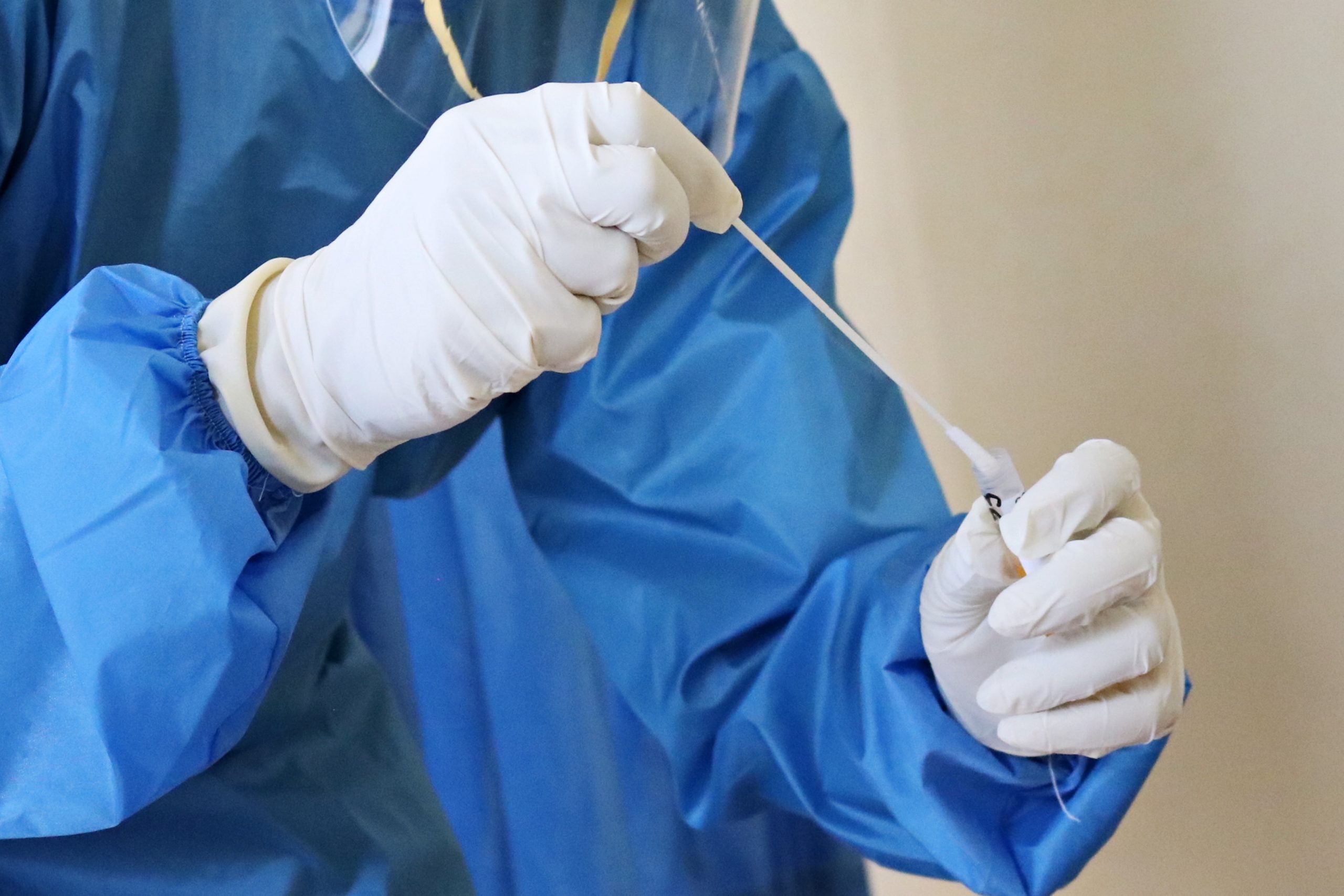
Lauren Dempsey, MS in Biomedicine and Law, RN, FISM News
[elfsight_social_share_buttons id=”1″]
A major study out of South Africa suggests that the Omicron variant causes less severe symptoms than previous variants, but is more vaccine resistant to the Pfizer-BioNTech COVID-19 vaccine that has been widely used.
The study has not yet been peer reviewed , but was conducted by Discovery Health, the largest insurance provider in South Africa. The goal was to perform a real-world and real-time collection and evaluation of patients hospitalized with COVID-19.
Data from the study suggests the risk of hospitalization from COVID-19 was 29% lower when compared to the initial wave of infection in 2020. The study also indicates the Pfizer-BioNTech vaccine provides 70% protection against severe complications of COVID-19 requiring hospitalization, and 33% protection against COVID-19 infection. However, the study did acknowledge that this information was based on the first three weeks of the Omicron wave and may change as the wave progresses. With that in mind, this data should be considered preliminary.
This new information could be beneficial as public health officials and experts try to determine the severity of the Omicron variant.
In the U.K., Prime Minister Boris Johnson announced that 40% of positive cases in London were from the Omicron variant and there has been one death from the new variant to date.
In an effort to prepare for Omicron eventually representing the majority of cases going forward, the U.K. government has instituted new rules that went into effect this week.
A press release detailed the new restrictions for those who are fully vaccinated. If a fully vaccinated individual comes in contact with “someone with COVID-19 – whether Omicron or not – [he or she] should take an NHS rapid lateral flow test every day for 7 days to help slow the spread of COVID-19.” In addition to these new rules, stricter mitigation measures may be put into place ahead of Christmas.
The U.K. government continues to strongly encourage vaccination and booster shots. Dr. Meng Khaw said “The single best thing you can do to protect yourself, your community and the NHS against new variants of coronavirus is to take up the offer of a vaccine.”
Health officials in the United States also are encouraging vaccination as the best method of protection, suggesting that everyone age 5 and older should get vaccinated and everyone aged 16 and or older who has been previously vaccinated with an mRNA COVID-19 vaccine should get a booster after 6 months and after two months if vaccinated with the Johnson and Johnson COVID-19 vaccine. The CDC urges vaccination for those who are at high risk and recommends that everyone aged 2 and older wear masks indoors or areas of high transmission.
According to data that was released Friday, in the United States 22 states have reported 43 cases with one person hospitalized for two days and zero documented deaths. Of these, 58% were persons aged 18-39.
Data also revealed that almost 80% of the infected individuals had “completed the primary series of an FDA-authorized or approved COVID-19 vaccine ≥14 days before symptom onset or receipt of a positive SARS-CoV-2 test result, including 14 who had received an additional or booster dose; five of the 14 persons had received the additional dose <14 days before symptom onset.”
Symptoms continue to be mild and include cough, fatigue, congestion and runny nose; however, due to the rapid transmission rate, the CDC recommends continued mitigation measures such as vaccination, masking, improving ventilation, testing, quarantine, and isolation.
